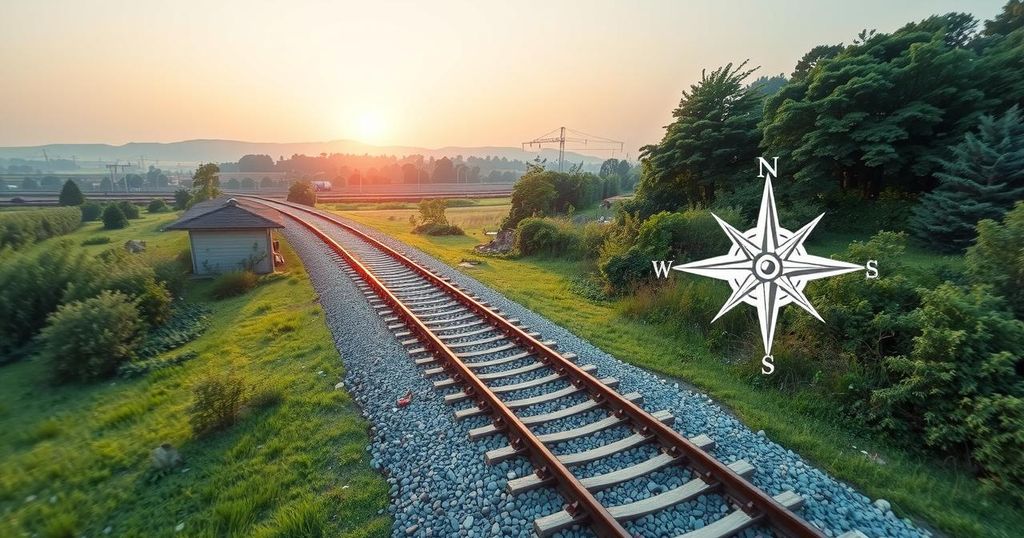High Power Exploration (HPX) faces skepticism about its proposed $5 billion rail project in Liberia aimed at exporting Guinea’s iron ore. Critics cite Guinea’s historical refusal to export through Liberia and a new rail initiative that raises doubts about HPX’s plans. The situation calls for concrete evidence of Guinea’s approval, as Liberia grapples with potential financial implications from HPX’s ambitions.
High Power Exploration (HPX), a mining company supported by billionaire Robert Friedland, is encountering skepticism regarding its ambitious plan to gain rail access through Liberia for exporting iron ore from Guinea’s Nimba deposit. Critics are questioning the practicality and underlying intentions of HPX’s $5 billion infrastructure investment due to existing tensions with Guinea’s longstanding policies on resource control and an ambitious domestic rail initiative.
For over sixty years, Guinean administrations have opposed exporting iron ore through Liberia, mandating that mining companies invest in local infrastructure for resource processing. This policy is rooted in a commitment to economic nationalism, ensuring that Guinea maintains authority over its mineral wealth. Although there was a brief period in 2019 when Guinea allowed limited use of Liberia’s rail through an agreement, the current military-led government is reverting to Guinea’s established priorities.
The geopolitical dynamics shifted significantly in 2023 with a deal reached for the construction of the Trans-Guinean Railway, linking Guinea’s Simandou iron ore reserves to a deepwater port in Conakry. With this 650-kilometer corridor nearing completion and projected to be operational by late 2025, it is viewed as a more viable and cost-efficient alternative compared to HPX’s proposed rail line through Liberia.
Analysts highlight that HPX’s proposed infrastructure project appears financially impractical, with Mamadi Trawally, a mining economist, stating that leveraging Guinea’s rail system would be at a fraction of the cost of HPX’s plan. HPX has announced ambitions to transport 25 million tonnes of Guinean ore annually through Liberia, but has struggled to provide credible evidence of Guinea’s approval, leading to accusations of deception regarding their claims.
The firm’s recent shift towards Liberia has raised concerns among Washington officials, who express skepticism about Guinea’s acceptance of rival projects undermining its own $15 billion rail investment. Liberian President Joseph Boakai’s government is under increasing pressure to reject HPX’s proposal until clear evidence of Guinea’s consent is presented, amidst fears of becoming encumbered by unfulfilled foreign promises and infrastructure left unfinished.
Civil society advocates, such as Abigail Weedor of the Liberian Civil Society Initiative, warn that investing billions in HPX’s railway venture without Guinea’s assurance could result in a deadend. With the completion of the Trans-Guinean Railway approaching, regional observers note that the responsibility is on HPX to adjust to the shifting realities of the region and provide reassurance regarding their plans for Liberia.
The quest for clarity continues in Liberia as stakeholders await definitive proof of agreements with Guinea. The situation highlights the challenges of navigating infrastructure investments amid evolving geopolitical priorities.
High Power Exploration’s initiative to develop a rail system in Liberia has met with significant criticism, primarily due to Guinea’s historical policies that prioritize domestic control over mineral resources. The backdrop of Guinea’s resistance to exporting iron ore through Liberia underscores the tension surrounding HPX’s proposal, which has emerged concurrently with Guinea’s commitment to complete the Trans-Guinean Railway, an endeavor that reshapes the transportation of ore in the region.
The mounting doubts surrounding HPX’s rail project reflect wider uncertainties regarding regional investments and compliance with local resource governance and economic policies. As stakeholders eagerly await evidence of cooperation between HPX and Guinea, the fate of Liberia’s potential infrastructure development hangs in the balance, emphasizing the critical need for transparent agreements and feasible plans.
Original Source: frontpageafricaonline.com




